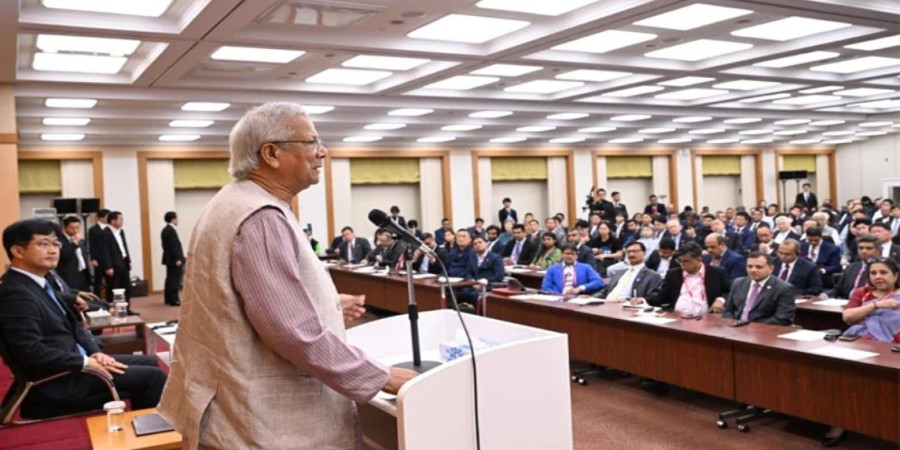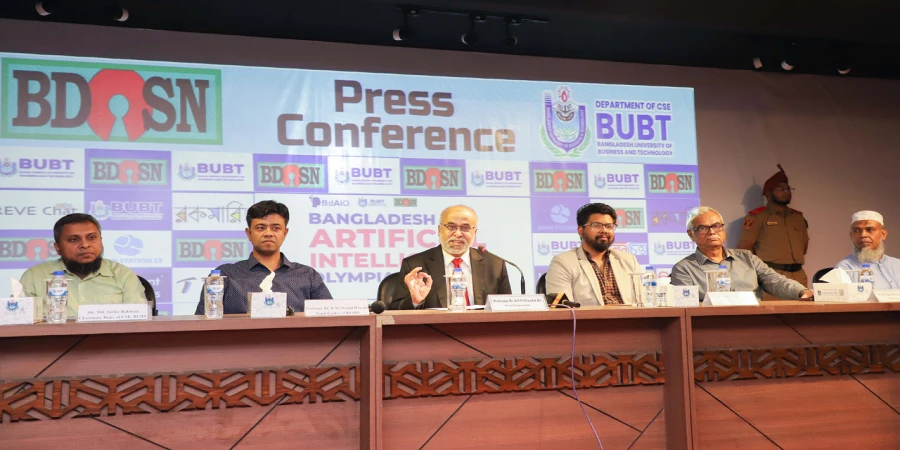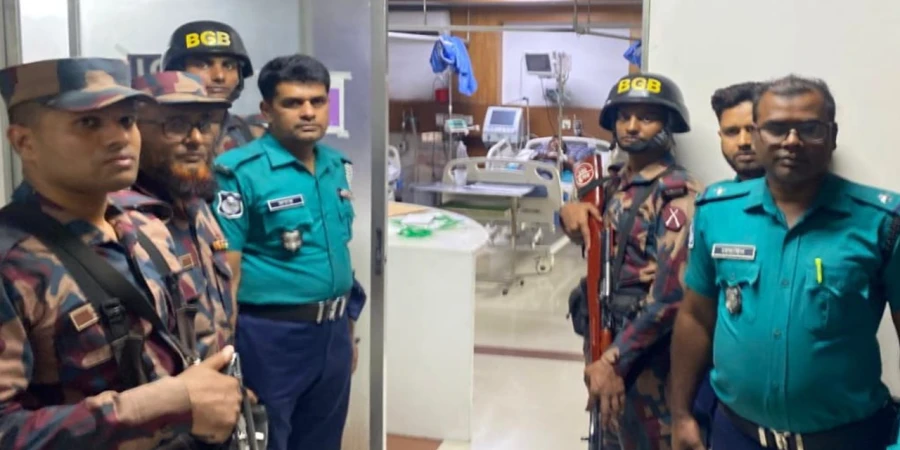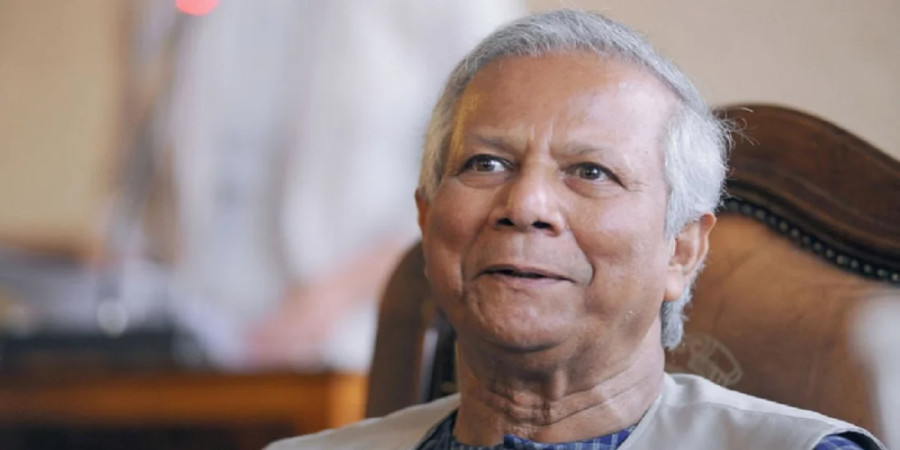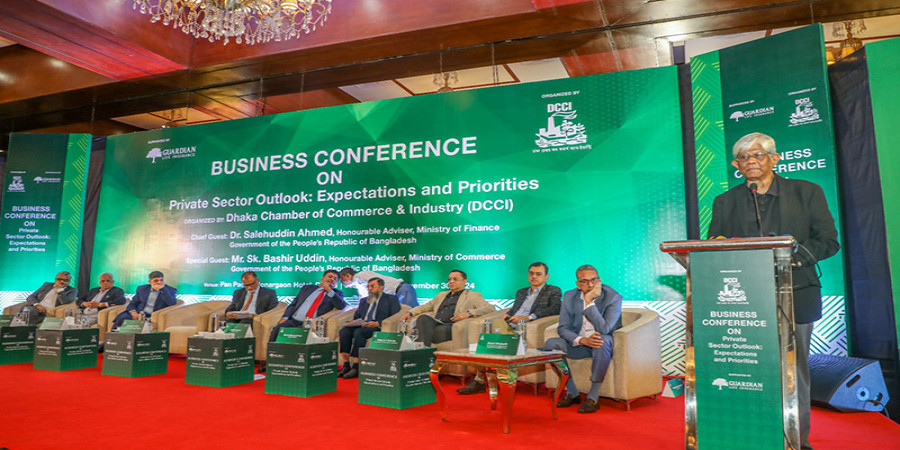
ছবি: Photo: Collected
Economic Advisor Dr. Salehuddin Ahmed has highlighted the immense challenges in addressing systemic irregularities and corruption ingrained over the past 15 years, emphasizing that such deep-seated issues cannot be resolved within just a few months. Speaking at a trade conference on Saturday, November 30, held at a hotel in Dhaka, he assured that the government is committed to sending a strong message: the era of unchecked corruption and money laundering is coming to an end.
Organized by the Dhaka Chamber of Commerce and Industries (DCCI), the conference, titled “Private Sector Perspectives: Expectations and Priorities,” brought together prominent stakeholders to discuss the country’s economic challenges and prospects. Presided over by DCCI President Ashraf Ahmed, the event also featured Trade Advisor Sheikh Bashir Uddin, Foreign Investors Chamber of Commerce and Industry (FICCI) President Javed Akhtar, and Bangladesh Association of Banks President Abdul Hai Sarker.
Dr. Salehuddin Ahmed began by reflecting on the scale of damage inflicted on the nation’s economy over the past decade and a half. He noted that corruption had permeated all levels of governance, with even high-ranking officials involved in malpractice. According to him, these years of negligence and mismanagement have left the economic sector in a dire state, which will require sustained and meticulous efforts to rebuild.
In his address, Dr. Ahmed emphasized the significance of reforms, acknowledging public frustration over the slow pace of change. However, he reiterated that reversing years of malpractice is a complex task that cannot be accomplished overnight. He stressed the government’s commitment to ensuring accountability and transparency in financial dealings, declaring that the days of unchecked money laundering and embezzlement are over.
The Economic Advisor expressed cautious optimism regarding the nation’s economic recovery. He stated that the depletion of foreign currency reserves, which had been a major concern, is gradually stabilizing. Positive responses from international partner organizations and foreign stakeholders indicate growing confidence in Bangladesh’s economic management under the current administration.
Dr. Ahmed also highlighted the importance of ensuring a stable macroeconomic environment for private sector growth. He urged stakeholders to focus on building a robust economic framework to restore investor confidence and attract foreign direct investment. He added that collaboration between the government and the private sector is essential to achieving sustainable economic progress.
Speaking on behalf of the DCCI, President Ashraf Ahmed emphasized the private sector’s vital role in driving economic growth and expressed hope that the government’s reform agenda would address longstanding bottlenecks. He underscored the need for a predictable and business-friendly regulatory environment, which would encourage investment and spur innovation.
Trade Advisor Sheikh Bashir Uddin echoed similar sentiments, urging the government to adopt measures that would create a conducive atmosphere for trade and commerce. He emphasized the need for policy consistency and long-term planning to overcome the challenges posed by years of mismanagement.
FICCI President Javed Akhtar called for stronger partnerships between domestic and international investors to foster economic resilience. He highlighted the importance of integrating global best practices into Bangladesh’s economic framework to make it more competitive on the world stage.
Banking sector representative Abdul Hai Sarker noted the crucial role of financial institutions in ensuring the effective implementation of reforms. He urged banks to align their policies with the government’s goals of curbing financial irregularities and supporting sustainable development.
In his concluding remarks, Dr. Salehuddin Ahmed reiterated the government’s unwavering commitment to creating a corruption-free economy. He assured attendees that ongoing reforms, though challenging, are necessary to secure long-term stability and prosperity. While acknowledging the enormity of the task ahead, he expressed confidence that with collective effort and determination, Bangladesh can overcome its economic challenges and chart a course toward sustained growth.
The conference ended with a renewed pledge from all participants to work collaboratively toward a brighter economic future for Bangladesh.
repoter



